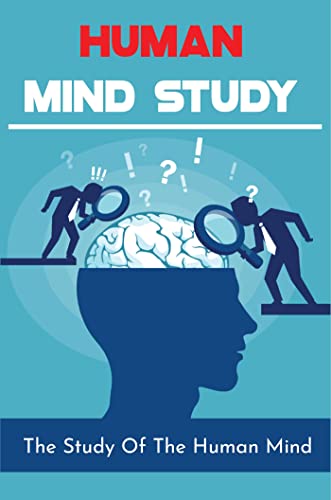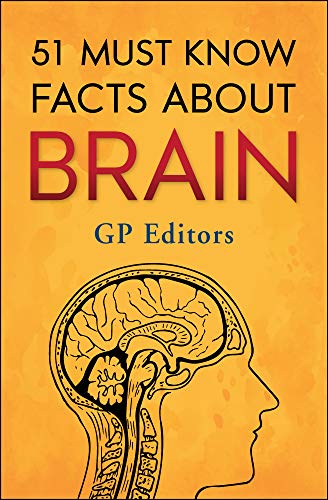Learning Important Facts About Thinking
The human mind encompasses brain activities. Thinking enables understanding, reasoning, and thought generation. Unconscious tasks influence conscious thinking when the brain concentrates on functions.

The Study of the Human Mind
The human mind is generally regarded as a power that manifests itself in all mental processes, including thinking, reasoning, perception, belief, sensation, memory, emotion, motivation, and desire. Normally, the intellect is contrasted with the physical body. Understanding the human mind and psychology is a difficult task. Scientists and academics from all around the world have made significant progress in understanding the human brain and its performance. In truth, our behaviour is the product of a complicated interplay between our genetic make-ups, the chemistry of our bodies and how they work, and the environment in which we grew up or currently reside.

Human Brain Thinking Capacity
The human brain is made up of almost a billion neurons, each of which connects to the others, resulting in over a trillion connections in total. If each such neuron could only store one memory, humans would run out of memory space in a matter of days. Our brains only have a few gigabytes of storage capacity, similar to the memory or storage space of a computer or hard disc.
However, there is no need to be concerned because the human brain has a high capacity for thought. Our brain's neurons join in such a way that each one may store many memories at once, expanding the capacity of our brain's memory storage exponentially to around 2.5 petabytes. It is difficult to calculate the exact storing or thinking capacity of the human brain. The reason for this is that there is no accurate technique to measure memory size.
While some memories contain more information and thus take up more room, others are wiped and thus free up space. Furthermore, certain data are not important enough to be remembered in the first place. This is beneficial to our brain since it allows it to keep up with the fresh experiences we seek throughout our lives.
Facts of Thought
Brain Facts

That Will Astound You Despite accounting for only 2% of total body weight, the brain is considered the body's powerhouse. It is a squishy, jelly-like organ with trillions of neuronal cross-connections. It oversees all bodily activities, while its higher functions offer consciousness and personality. Here are some interesting brain facts that you could find useful.
Human Brain Size Statistics
An adult human brain weighs roughly 3 pounds and measures over 15 centimetres in length. Men's brains are nearly 100 grammes larger than women's. Although water makes approximately 73% of our brain, fat accounts for roughly 60% of its dry weight, making it the fattiest organ in our body. Our brain, like all other organs and muscles, need hydration. Sweating constantly for more than 90 minutes may cause our brain to shrink by a year.
Early Childhood Brain Development
A child's brain size at birth is roughly a fourth of the normal adult brain size. Surprisingly, the size doubles in the first year and continues to develop at a high pace thereafter. A child's brain reaches approximately 90% of its adult size by the age of five. According to study, a youngster who receives adequate parental comfort when under stress has a larger hippocampus than others. This area of the brain is in charge of stress management and memory.
Constant Oxygen Supply Is Required
We are all aware that one of the key sources of our survival is oxygen. Without adequate oxygen delivery, our bodies' organs such as the heart, lungs, and even muscles will stop operating. It is also vital to understand that our brain requires a steady flow of oxygen in order to function properly. Even a five-minute shortage of oxygen can induce the death of numerous brain cells, culminating in significant brain damage.
There is no pain in the brain.
Although our brain does not sense pain, the sensation of pain is handled by this organ. It doesn't have any pain receptors in it. Brain freezing or any other type of brain surgery does not cause the brain to feel pain. This explains why neurosurgeons were able to operate on brain structures without causing the patient any distress. Brain surgery can even be performed while the patient is conscious in some cases.
Information Transfer Rate The journey to and from the brain
At a breathtaking 268 kilometres per hour, information can move to and from the brain. When a neuron is triggered, an electrical pulse is produced, which causes information to move from cell to cell. An epileptic seizure can come from any disruption in this orderly processing.
Only 10% of the Brain Is Used
The misconception that we only use 10% of our brain is debunked. MRI scans have revealed that in order to conduct even the most basic of tasks, nearly the entire brain must remain active, even while sleeping.
The storage capacity of the brain is virtually limitless.
The knowledge we collect in our daily lives is stored in trillions of neurons within our brain. Although not endless, this storage is large enough to hold all of the information we learn each day. Furthermore, it is not constrained by our brain's store capacity.













